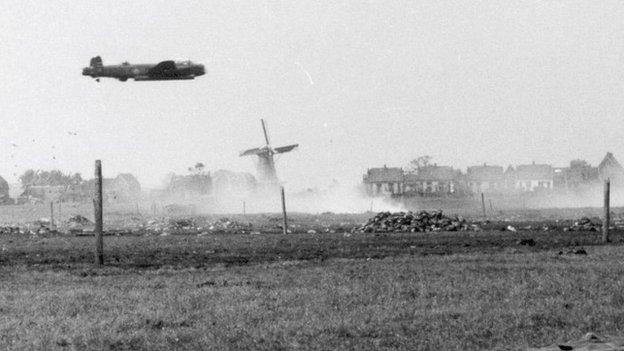Lincoln Bomber Command visitor centre 'urgently' needs £2m
- Published
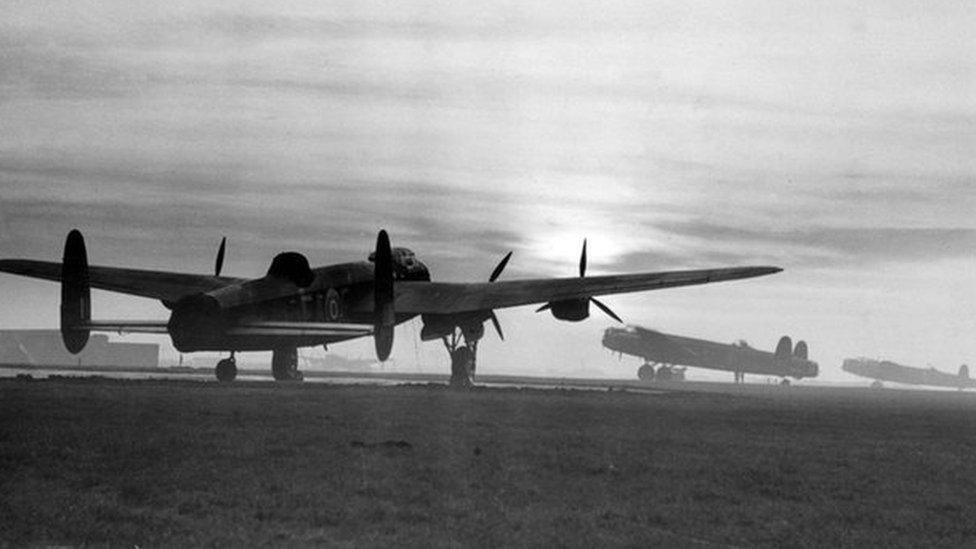
More than 125,000 men served as aircrew in Bomber Command during World War Two
Millions of pounds are still needed to complete a memorial and visitor centre to bomber aircrew before the last veterans die.
The International Bomber Command Centre (IBCC) said 78 veterans had died since the beginning of the year, out of 1,100 remaining worldwide.
The site - set to open in September - still needs £2m in donations and events are being held to raise the cash.
IBCC director Nicky Barr described the shortfall as "heartbreaking".
She said: "I personally feel we've let them down. We are losing veterans at such a rate and we are desperate to see the centre open."
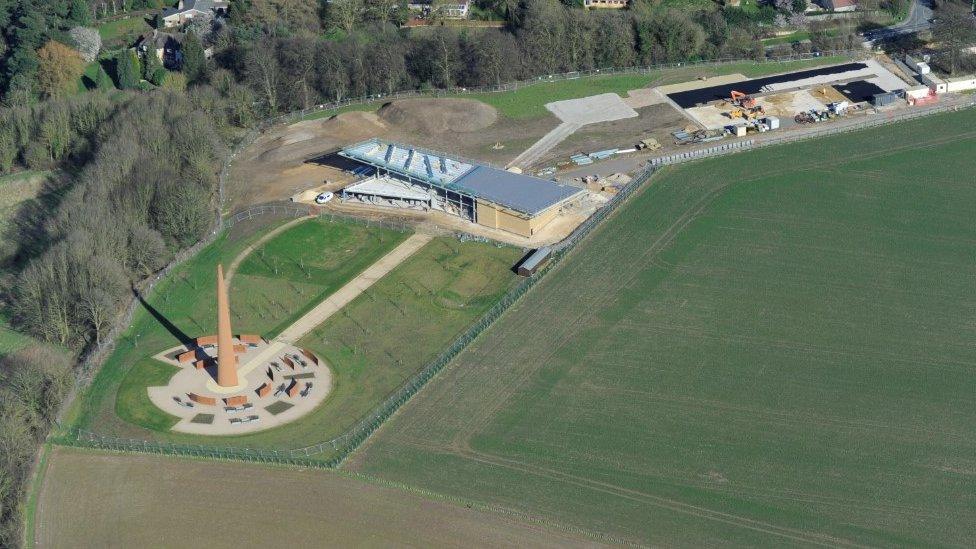
About £2m of funding is required to finish work on the International Bomber Command Centre
Bomber Command crews were tasked with attacking Germany's airbases, troops, shipping and industrial complexes connected to the war effort.
The Lincoln attraction is to honour their efforts with exhibitions, information and accounts from aircrew and survivors.
Officials said fundraising efforts had been hampered by a number of break-ins at the site, including one at the weekend.

The memorial spire, which is already in place at the site, will eventually list the names of all 55,573 Bomber Command casualties
Thieves took items intended for a forthcoming open day, including two generators, food and drink.
They also shredded a wreath left at the base of the memorial spire.
Bomber Command
125,000
Aircrew served in Bomber Command in World War Two
-
364,514 operational sorties flown
-
55,573 aircrew killed in action
-
25,611 killed flying from Lincolnshire
-
70% of aircrew were killed, taken prisoner or injured
Almost half of the 125,000 Bomber Command lost their lives and it is estimated between 300,000 and 600,000 civilians died as a result of large-scale area bombing near the end of the war.
Mrs Barr said "these boys were forgotten after the war, and were publically ignored".
She added: "And yet, night after night they went up and faced the biggest risks of any unit in World War Two.
"For us as a nation to have turned our back on them is a very sad injustice, and we've got an opportunity to put it right while they are still alive."
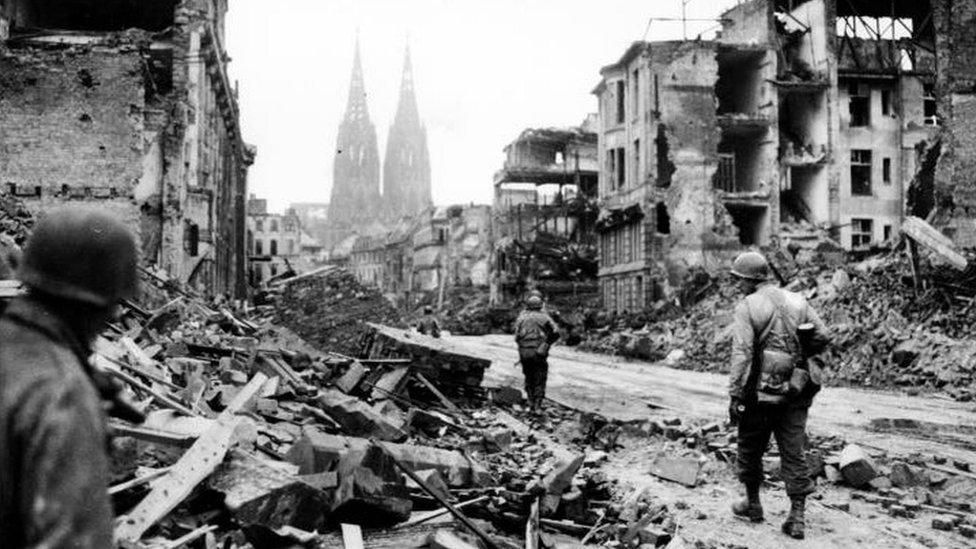
Bomber Command has come under fire from some quarters for its part in raids on German cities like Cologne, pictured here in March 1945
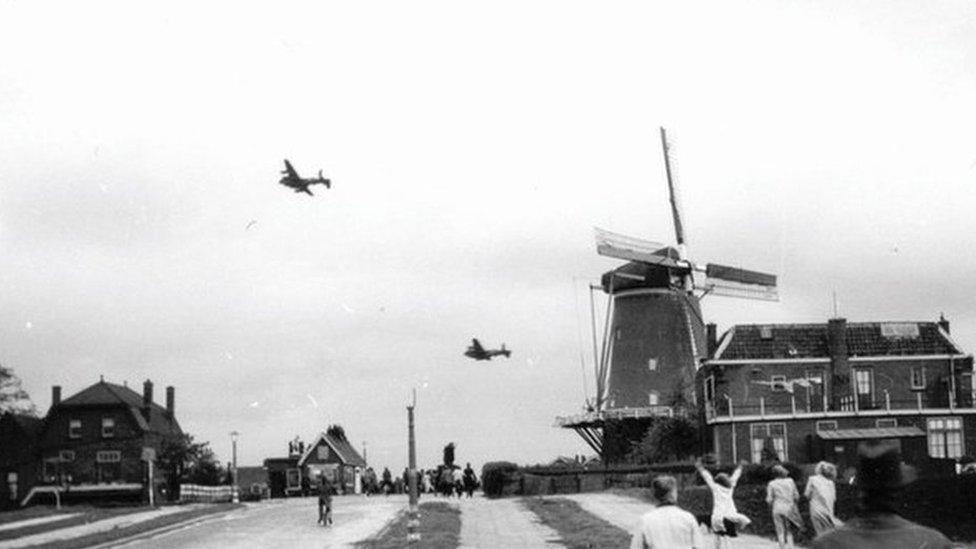
Bomber crews also took part in humanitarian missions, dropping nearly 7,000 tonnes of food in Nazi-occupied Holland
- Published29 April 2016
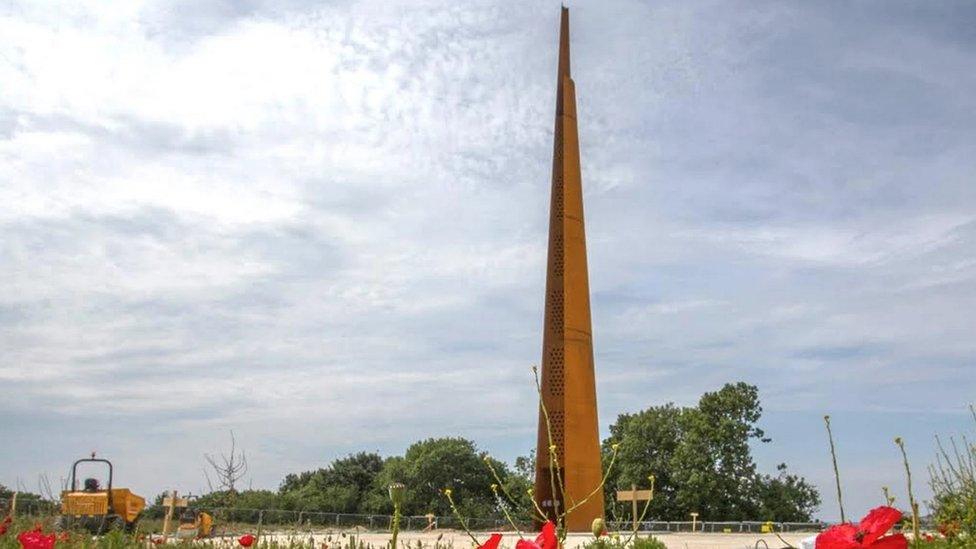
- Published2 October 2015
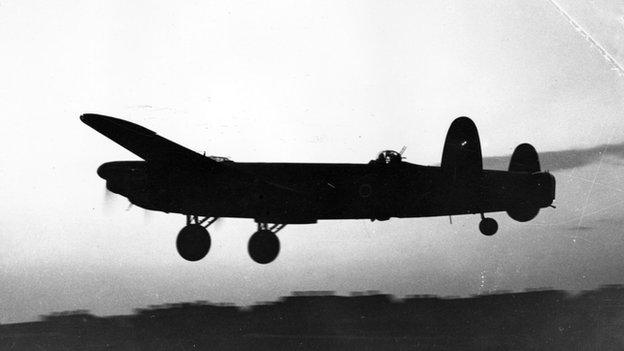
- Published21 April 2015
